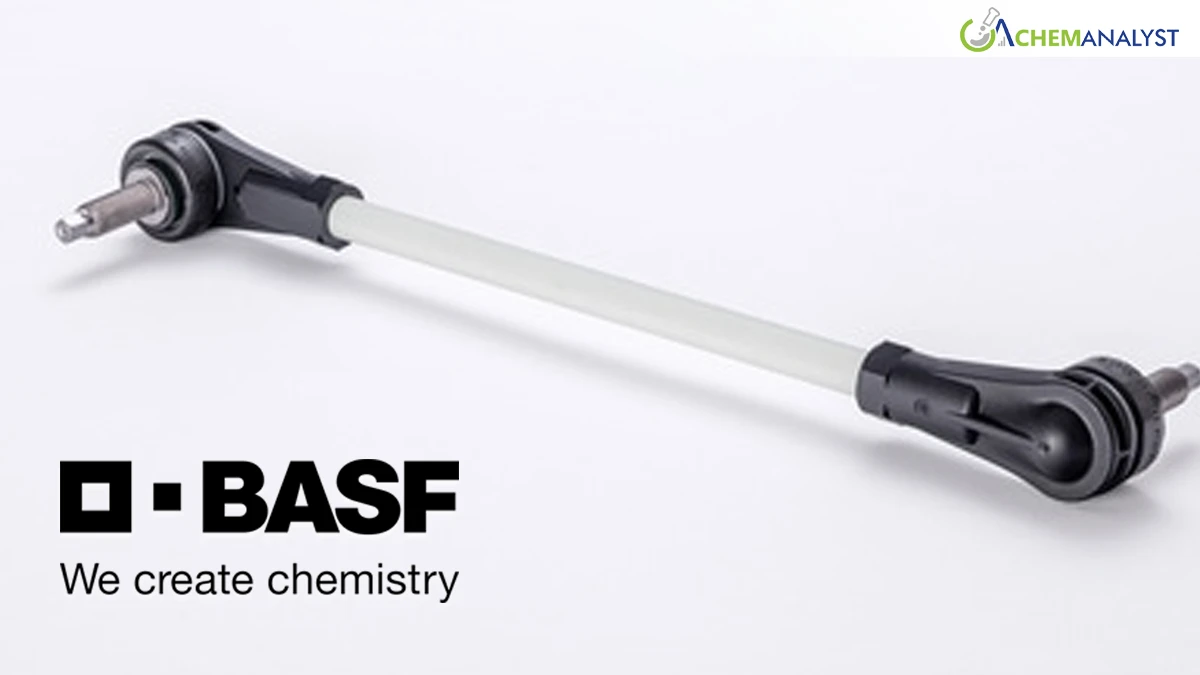Welcome To ChemAnalyst

BASF demonstrates innovative polyamide recycling technologies, enabling automotive plastics circularity, reducing CO2, and supporting sustainable end-of-life vehicle material recovery.
At K 2025, BASF, in collaboration with its partners, will highlight two advanced technologies designed to recycle polyamides from end-of-life vehicles (ELVs). While the recovery of metals from decommissioned cars has long been an established practice, approximately 200 kilograms of plastics per vehicle are still incinerated, representing a major loss of valuable materials. BASF’s innovative solutions aim to address this challenge, particularly in light of the upcoming End-of-Life Vehicle Regulation (ELVR), which is expected to impose stricter requirements for sustainable waste management. Several pilot projects demonstrate how automotive plastic waste can be repurposed as a raw material and reintegrated into a closed-loop cycle for automotive applications.
Depolymerization of Polyamide Components from ELVs
One of BASF’s pioneering approaches is a chemical recycling process for polyamides that raises the bar for technical plastic recycling. Demonstrated through a pilot project, the process allows even heavily used and contaminated parts—such as oil pans from ZF Group vehicles—to be efficiently and sustainably recycled. At the heart of the method is depolymerization, which breaks down long polyamide chains into their original monomers at specific cleavage points. The resulting monomer, caprolactam from PA6, is then purified, removing impurities that mechanical recycling would fail to eliminate, thereby ensuring high-quality, safe material. The purified monomer is subsequently re-polymerized into polyamide suitable for demanding automotive components, achieving a true automotive-to-automotive recycling loop.
Martin Scheuble, Team Leader Circularity Engineering Plastics at BASF, notes, “What was once considered non-recyclable now serves as the foundation for high-quality new products.” The project’s success is underscored by the ZF Group’s transformation of the recycled material into a technically sophisticated chassis component—the Stabilizer Link—for Mercedes-Benz. Testing confirmed that the depolymerized polyamide meets stringent performance and chemical-physical standards. Dr. Michael Lohrmann, Director of Materials Technology at ZF, highlights the significance: “This project demonstrates recycled plastic’s potential even for technically demanding applications and reflects ZF’s commitment to sustainable material cycles.”
Solvent-Based Recycling from Automotive Shredder Residue
BASF’s second pilot focuses on automotive shredder residue (ASR), a complex mixture left after metal and glass removal. Through collaboration with a recycling partner, polyamides were extracted in largely pure form using advanced sorting and processing technologies. These fractions underwent a solvent-based recycling process, where the polymer is selectively dissolved, purified, and reprocessed into PA6 compounds without breaking the polymer chains. Components such as a chain guide rail were successfully manufactured and tested under near-series conditions by Mercedes-Benz and Pöppelmann, demonstrating the practical applicability of this method. Steffen Meyer, Team Leader Production Technology at Pöppelmann, emphasizes, “Solvent-based recycling provides a viable alternative for plastics that are otherwise difficult to recycle, advancing the holistic circular economy.”
Sustainability and Life Cycle Benefits
External life cycle analyses (LCA) confirm that both depolymerization and solvent-based recycling significantly reduce CO2 emissions compared with conventional fossil-based polyamide production and traditional recycling methods. Each process contributes to advancing the circular economy while supporting sustainable plastics management.
A Broad Spectrum of Recycling Technologies
Under the banner of #OurPlasticsJourney, BASF continues to develop complementary recycling solutions to meet varying waste streams and sorting requirements. Mercedes-Benz’s Jana Krägenbring-Noor notes, “Expanding recycling technologies is essential to increase the availability of secondary materials and support resource conservation.” Dr. Martin Jung, President of BASF Performance Materials, adds, “A combination of chemical, mechanical, and solvent-based recycling, supported by an appropriate regulatory framework, is critical to reducing landfill waste and producing high-quality recycled plastics.”
Through these innovations, BASF and its partners are advancing a future-ready circular economy, transforming plastics from discarded materials into valuable resources for the automotive industry.
We use cookies to deliver the best possible experience on our website. To learn more, visit our Privacy Policy. By continuing to use this site or by closing this box, you consent to our use of cookies. More info.
